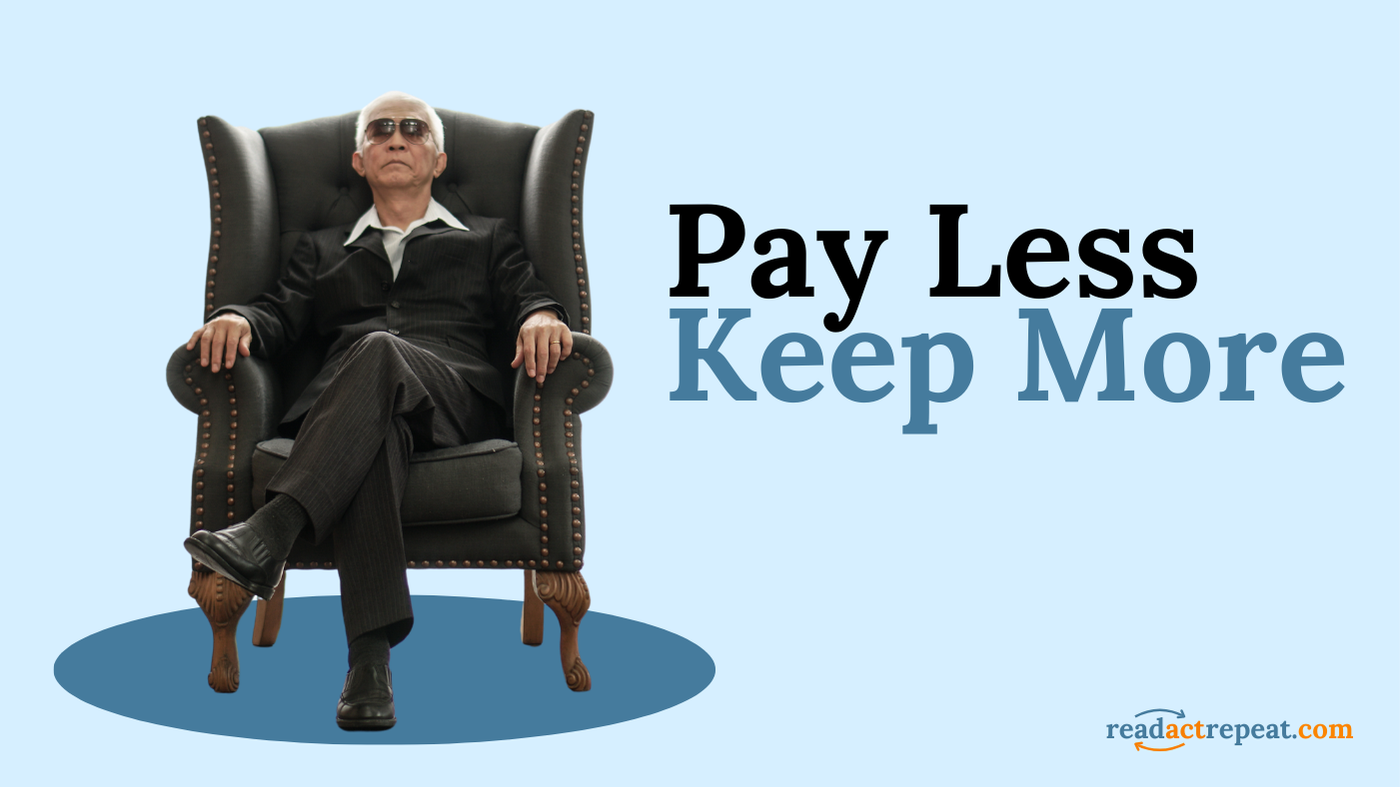If you’ve ever wondered why wealthy individuals seem to pay far less in taxes than the average person, you’re not alone. The reality is, there’s a significant gap between how much the rich and the middle class contribute to taxes. In Rich Dad Poor Dad, Robert Kiyosaki sheds light on why the rich pay less in taxes and how financial literacy gives them a clear advantage. The answer lies in understanding the tax system, leveraging legal loopholes, and knowing how to structure income.
In this blog, we’ll dive into the reasons why the rich pay less in taxes and how you can apply some of these principles to your own financial strategy.
The Difference Between Earned Income and Passive Income
One of the most significant distinctions Kiyosaki makes is between earned income and passive income. Most middle-class people earn their income through a salary. They trade time for money, which is taxed at the highest rates under the progressive tax system. The more you earn from a salary, the more taxes you pay.
The wealthy, on the other hand, focus on generating passive income—income from investments, businesses, or assets. This type of income is often taxed at lower rates. For example, capital gains tax on long-term investments is typically lower than income tax on a salary. So, while someone working a high-paying job might pay 35% or more in taxes, someone earning the same amount from investments may only pay 15-20%.
If your primary source of income is a paycheck, you’re likely paying higher taxes than someone who’s made the shift to generating passive income through assets like real estate or stocks.
Corporations: The Secret Weapon of the Wealthy
One of the most effective tools the rich use to pay less in taxes is the corporation. Kiyosaki emphasizes that the wealthy often own corporations, which allow them to take advantage of tax benefits that aren’t available to individuals. A corporation is a legal entity separate from its owners, which means it can own assets, generate income, and pay taxes, just like a person—but with certain advantages.
Here’s why corporations are beneficial for tax purposes:
- Income Distribution: Corporations can distribute income in ways that reduce the overall tax burden. For example, instead of taking all earnings as salary (which would be taxed heavily), the owner can receive dividends, which are often taxed at a lower rate.
- Expense Deductions: Corporations can deduct business expenses before they are taxed. This includes things like travel, office supplies, marketing costs, and even health insurance for employees (including the owner). For individuals, these expenses come out of pocket after taxes. For a corporation, these are deducted first, lowering taxable income.
- Reinvesting Profits: Corporations can reinvest their profits into the business without paying taxes on that money until it’s distributed. This means the company can grow and accumulate assets while deferring taxes to a later date. In contrast, individuals are taxed immediately on their income.
By leveraging the corporate structure, the rich can legally minimize their tax obligations while retaining control over their money.
The Power of Real Estate and Depreciation
Real estate is another major avenue through which the rich pay less in taxes. Kiyosaki explains that one of the most powerful tools in real estate is depreciation. Depreciation allows property owners to deduct a portion of the cost of the property over time, even if the value of the property is increasing.
Here’s how it works: when you own a rental property, the government allows you to write off the wear and tear of the property over time, even if the property is appreciating in value. This depreciation reduces your taxable income, even though you may actually be making money from the property. Essentially, you’re making a profit while claiming a tax deduction.
For example, if you own a rental property that earns $10,000 a year in rental income but can claim $3,000 in depreciation, you’re only taxed on $7,000 of income. This reduces your tax liability while allowing you to keep more of your earnings.
The combination of rental income and depreciation is one reason why many wealthy people invest in real estate. It’s a way to build wealth while simultaneously reducing tax exposure.
Using Debt to Your Advantage
While most people think of debt as a bad thing, the rich often use debt strategically to lower their taxes. For example, when purchasing real estate, they might finance a property with a mortgage. The interest paid on that mortgage can often be deducted from taxes as a business expense if the property is being used for investment purposes.
This means that not only can you acquire a valuable asset (the property), but you can also deduct the cost of the loan, effectively lowering your taxable income. The key here is using good debt—debt that helps you acquire income-generating assets. Unlike credit card debt or personal loans, this type of debt helps you build wealth while also providing tax advantages.
The Legal Loopholes
It’s important to note that the strategies the wealthy use to lower their tax bills are entirely legal. They’re not engaging in tax evasion, which is illegal and punishable by law. Instead, they’re taking advantage of the tax code in ways that many middle-class individuals simply don’t know about. The tax system is designed with incentives for certain behaviors, like investing in businesses, creating jobs, or owning real estate, all of which help the economy.
By understanding these incentives, the rich position themselves to benefit from the tax code. For example, governments often offer tax breaks to businesses that create jobs or invest in the local economy. By owning corporations and making strategic investments, the rich align themselves with these incentives and reap the benefits in the form of lower taxes.
What Can You Do?
Now that you know how the rich pay less in taxes, what can you do to improve your own tax situation? While you may not be able to start a corporation or invest in real estate overnight, there are steps you can take to start reducing your tax burden:
- Focus on Building Passive Income: Shift your financial focus from earned income (salary) to passive income (investments). Start small, but aim to build income-generating assets like rental properties, dividend-paying stocks, or side businesses.
- Educate Yourself on Tax Laws: One of the biggest advantages the rich have is financial literacy. The more you know about tax laws and how to use them to your advantage, the more you can save. Consider working with a financial advisor or tax professional who can help you identify legal ways to lower your tax burden.
- Use Business Structures to Your Advantage: If you’re self-employed or own a business, consider incorporating to take advantage of the tax benefits. Even a small business can benefit from expense deductions and income management strategies.
- Invest in Real Estate: If real estate investment is within your reach, consider exploring rental properties or other forms of real estate that allow you to benefit from depreciation and rental income.
Conclusion: Play Smart, Not Hard
The rich don’t pay less in taxes because they’re cheating the system. They pay less because they understand how the tax system works and how to use it to their advantage. By focusing on passive income, using corporations, and investing in assets like real estate, they legally reduce their tax obligations.
You may not have access to all the same resources as the wealthy, but you can start by increasing your financial literacy, exploring tax-efficient investment strategies, and taking steps to build passive income streams. The key is to play smart—not hard—when it comes to taxes.



